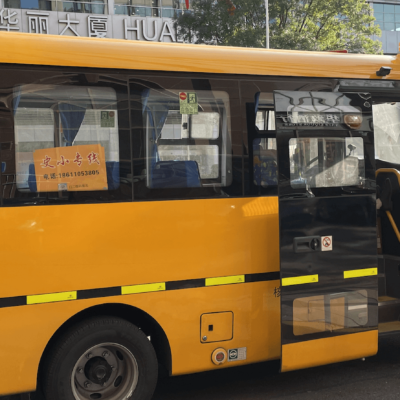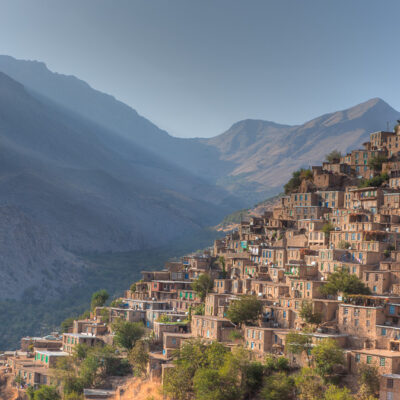When I was a journalist during the first year of Rodrigo Duterte’s presidency, I reported on a nationwide series of protests that commemorated International Human Rights Day on December 10, 2016.
Thousands took to the streets in regional centres across the Philippine archipelago, protesting the human rights abuses of the government’s so-called ‘war on drugs’ (WOD). This was one of the first major mobilisations against the WOD and it certainly wasn’t the last.
As the WOD rages on, even amid the COVID-19 pandemic, it has been opposed within the Philippines and outside it. Although international opposition has received more widespread attention in recent months, I argue that domestic contestations have to be given more significant focus, especially with the upcoming Philippine presidential elections in May 2022.
Close examination of those contesting the WOD, especially within the Philippines, is an important first step to understanding the goals, motivations, and relative effectiveness of these contestations. It also allows us to understand relationship patterns between different actors in the Philippine polity.
The bloody ‘War on Drugs’
When President Duterte came to power in June 2016, he immediately fulfilled his campaign promise to stamp out criminality by launching his bloody WOD. Duterte framed the problem of illegal drugs as crucial to the survival of the Philippine nation. Illegal drug users and peddlers were framed as dangerous ‘others’ that threatened the safety of the Filipino people—the ‘good’ us.
The day after he was sworn in, police officers began arresting and killing alleged drug users under Operation Tokhang (which focused on urban poor slums) and Operation Double Barrel (targeting alleged drug lords). After six months, Amnesty International reported that more than 7,000 Filipinos had been killed in the WOD. The total number of drug war deaths remains contested. The official number from the Philippine National Police is 5,526 as of December 2020. However, this does not include the thousands of extra-judicial killings carried out by armed vigilantes. Domestic human rights groups have estimated the total number of WOD deaths at 27,000 as of December 2020.
The President’s actions have attracted local and international opposition. On the international side, the International Criminal Court’s (ICC) prosecutor, on 14 June 2021, sought full authorisation from the tribunal to open a full investigation into the WOD. Outgoing Prosecutor Fatou Bensouda said ‘there is a reasonable basis to believe that the Crime Against Humanity of Murder was committed’ in the country between July 1, 2016 and March 16, 2019 in the context of the government’s WOD. If the investigation proceeds, judges can issue summons and even arrest orders—with Duterte and his top officials being named respondents.
The UN Human Rights Council and the UN Office of the High Commissioner on Human Rights (OHCHR) are some of the biggest international critics of the WOD. In July 2019, the UN Human Rights Council voted to set up an investigation into alleged abuses. In October 2020, however, instead of launching a comprehensive investigation, the Human Rights Council passed a resolution providing technical assistance to the Philippines on areas of accountability, data gathering of violations by the police, and a rights-based approach to drug control.
Meanwhile, the OHCHR has been critical of the WOD since reports of the abuses surfaced in 2016. The office has repeatedly asked the Philippine government to allow independent rapporteurs to investigate the WOD. In response, Duterte resorted to name-calling and threatened UN rapporteur Agnes Callamard with violence should she come to the Philippines.
Much academic attention has been given to the international consequences of the WOD under international law on genocide, the Responsibility to Protect, and possible prosecution in the ICC. On the domestic side, the media have played an important role in reporting the human rights abuses of the WOD (for example, see Rappler’s Impunity Series). Researchers have also problematised the patterns of drug war killings, the WOD’s implications on human rights practice, and the use of police violence.
What is missing is an analysis of the contestations happening against Duterte’s WOD at the domestic level. What types of contestations are happening against the WOD locally? Who are carrying out these contestations; and are they influencing the government?
Classifying domestic contestations
I classify the various contestations, or mobilisations (ie specific movements), being carried out domestically in the WOD in three ways:
- Political mobilisations, including mass protests, local and international lobbying, and advocacy networks.
- Legal mobilisations, such as filing local cases against the WOD
- Social mobilisation, including rehabilitation programs for drug users and trauma counselling for survivors and their families.
I contextualise these contestations by using political scientist Michael Goodhart’s understanding of human rights as political demands. Goodhart argues that human rights should be understood as ‘demands for emancipation, for an end to domination and oppression.’ In terms of power, Goodhart notes that human rights confront ‘the ideology of arbitrary power and inherited or exclusive privilege with the ideology of freedom and equality for all. This definition of human rights is most apt to understanding how human rights are mobilised and used to contest the WOD in the Philippines. Human rights as political demands also fall within the protest school of Marie-Benedicte Dembour’s four schools of human rights. The protest school understands human rights as an avenue to redress injustices, realised through ‘a perpetual struggle.’
Furthermore, most WOD abuses and deaths are happening in urban poor areas. This has led Amnesty International and others to call the WOD a ‘war against the poor.’ I therefore use political economists Jane Hutchison and Ian Wilson’s analysis of the urban poor in the Philippines, which acknowledges the urban poor’s agency in political participation, and in their reliance on non-government organisations for more disruptive forms of politics.
Political mobilisations: mass protests and international lobbying
Most Philippine civil society organisations including NGOs, advocacy networks and academic institutions, were active in terms of traditional protests and local and domestic lobbying as soon as the WOD abuses started. As noted earlier, Human Rights Day (December 10), has become a traditional protest day against the abuses of the WOD. Other Philippine holidays, like the February 25 commemoration of the 1986 People Power Revolution (also known as the EDSA Revolution) has also been used to criticise the WOD.
The most influential of the local actors are the Catholic Church and the Philippine Left. The Philippines is the biggest Catholic nation in Asia due to its Spanish colonial history. The Church played a key role in the ousting of the Marcos dictatorship, and, according to historian Lisandro Claudio, even co-opted the narrative of the 1986 EDSA People Power Revolution. Political scientist Eva-Lotta Hedman also provided a historical analysis of the Church’s role as part of the dominant bloc of Philippine civil society, and their roles in crises of authority in Philippine politics since the 1950s.
Bishops have not only used the pulpits to condemn the WOD as ‘immoral and illegal’ acts but others have conducted more brazen acts of resistance by sheltering WOD victims. However, the Church has been an ambivalent critic of WOD, because its leadership is divided on the issue. For example, some Catholic Church leaders in Mindanao, the region from which Duterte is from, have been supportive of the WOD and others have been subdued out of fear of retribution.
Another influential actor in political contestations against the WOD is the Philippine Left, which has the most capacity among other domestic groups to mobilise protests against the Duterte administration. It should be noted that the Philippine Left is not a homogenous organisation but one with several divergent factions. The biggest split is between the ‘reaffirmists’ who adhere to the Maoist-inspired Communist movement organised by Jose Ma Sison, and the ‘rejectionists’ who broke away from Sison. The reaffirmists, also known as the national democrats, allied itself with Duterte during the early part of his presidency while the rejectionists did not.
As Emerson Sanchez and Jayson Lamchek noted, the national democratic faction’s alliance with the government meant that their criticisms of the WOD were muted, and their legitimacy was questioned by those outside their influence. When the military generals who were uncomfortable with Duterte’s alliance with the Reds finally convinced the commander-in-chief to cut ties with the government, the Philippine Left increased its mobilisation against the Duterte administration. In response, the government created the National Task Force to End Local Communist Armed Conflict, which has been conducting a campaign to delegitimise the Philippine Left. The Taskforce has been accused of ‘red-tagging’ activists and advocates, and linking them to the Communist Party of the Philippines.
Aside from mass protests, another form of domestic contestation against the WOD has been lobbying. Local groups have put more focus on lobbying international organisations to influence the Philippine state’s actions on the WOD more than on lobbying local politicians to act against the Executive. Partly this is because, given the oligarchic nature of the Philippine legislature, Duterte holds a super majority in both houses of Congress. As soon as Duterte won the polls, major political parties signed a coalition with the president’s party, PDP-Laban. The 2019 Midterm Elections further solidified Duterte’s hold on the legislative, with the opposition failing to win any of the 12 senate seats up for grabs.
Duterte has subdued many political leaders with fear. Early in his presidency, Senator Leila De Lima initiated a probe into the WOD abuses in July 2016. By August 2016, the Duterte government had named her as an illegal drug lord. She has been detained since February 2017 for alleged violations of the Comprehensive Dangerous Drugs Act of 2002. De Lima’s experience has served as a chilling example to many Filipino politicians.
On the international side, CSOs have lobbied international organisations to put pressure on the Duterte government to stop the abuses. As early as August 2016, over 300 Philippine NGOs have asked UN agencies, particularly the United Nations Office on Drugs and Crime, to condemn the killings. Groups such as Karapatan (Alliance for the Advancement of People’s Rights) an alliance of organisations working to promote and protect human rights in the Philippines, have also lobbied the UN Human Rights Council to investigate the killings. Groups have also relied on transnational advocacy networks to pressure the Human Rights Council to act. A Human Rights Council resolution in October resulted from this lobbying, but some felt it was a missed opportunity to conduct a more rigorous investigation.
Legal mobilisations in the Supreme Court
Sociologist Cecilia MacDowell Santos defines legal mobilisation as the ‘practice of translating a perceived harm into a demand expressed as an assertion of rights,’ translated into a complaint presented to a court.
According to scholar Andrew Rosser, legal mobilisations are closely tied to justiciable legal frameworks for the protection of human rights that ‘ensure that government policies protect human rights, bureaucracies implement rights. But in developing country contexts, justiciable legal frameworks for the protection of human rights have a higher chance of succeeding when litigants have access to support structures for legal mobilisations, as in the example of education rights cases in Indonesia. In the WOD, civil society organisations can be seen as support structure to the extent that they empower victims to file cases against the government.
A leading organisation that has been helping victims file cases relating to the WOD is the Free Legal Assistance Group (FLAG), the oldest network of human rights lawyers in the Philippines. In October 2017, FLAG petitioned the Supreme Court to declare the WOD unconstitutional on the basis that:
- there was no legal written order from the president regarding the WOD;
- the Philippine National Police’s memorandum circular unlawfully empowered police to kill alleged drug users; and
- reporting of alleged drug users is done anonymously via tip offs, ‘without any safeguards for protecting innocent persons’. This effectively means anyone can be added to the drug users lists without due process.
Another prominent case led by FLAG under its current chairman, Atty Jose Manual Diokno, was that of 17-year-old Kian delos Santos, who was killed in an anti-drug operation in Caloocan City on August 16, 2017. FLAG provided legal assistance to the Delos Santos family and filed cases against the police to the Caloocan City Regional Trial Court. The court found three policemen guilty of murder in November 2018.
The results have been mixed. The Supreme Court has not ruled on the FLAG petition and has sided with the Duterte government in other cases like dismissing the petition questioning the validity of Duterte’s withdrawal from the ICC. However, the court has criticised the WOD in some decisions. In June 2020, for example, the court used their ruling in People of the Philippines vs. Jerry Sapla to emphasise the importance of upholding the Bill of Rights in relation to the WOD.
Social mobilisations: helping survivors
Social mobilisation against the WOD has been in the form of providing rehabilitative services to former illegal drug users and families of WOD victims. This type of contestation is indirect because it focuses more on survivors, but NGOs carrying out such activities also lobby against the WOD.
A good example is Rise Up for Life and for Rights, an alliance started in response to the WOD killings. Rise up focuses on mothers of victims slain in the WOD. They facilitate grief and trauma workshops and provide psycho-social support for mothers and other family members of victims, while actively advocating for the government to stop and investigate the killings.
Another organisation that empowers survivors is the Solidarity with Orphan and Widows created by a local Catholic parish church in Barangay Payatas. Aside from providing psychological and social support, SOW also partners with private organisations and individuals to provide jobs for grieving families.
Meanwhile, the Center for Christian Recovery provides rehabilitation services including medical, psychological and trauma treatment to former drug users.
Most NGOs working in the social mobilisation space are religious in nature. SOW follows tenets of Catholicism while Rise Up and Center for Christian Recovery follow evangelical doctrines. These organisations’ religious underpinnings shape their approach towards rehabilitation. Their religious backgrounds also highlight the influence of the Catholic and other Christian Churches in shaping civil society movements in the Philippines.
To what extent do these mobilisations and contestations impact the WOD?
Deeper analysis of the socio-political context in the Philippines, and data gathering with local actors are needed to understand the goals, strategies, and impacts of these contestations.
The high level of Duterte’s popularity and the fact that the WOD continues, shows that these mobilisations have had minimal effect in terms of mitigating the human rights impacts of the WOD. Despite five years of WOD human rights violations, Duterte has maintained high approval ratings. In December 2019, before the outbreak of the COVID-19 pandemic, Duterte’s net satisfaction rating stood at 72 percent, according to the Social Weather Station. In October 2020, eight months into the pandemic, the most recent Pulse Asia survey showed that 91 percent of Filipinos were satisfied with Duterte’s performance while his trust rating was at 87 percent. Pulse Asia, one of the Philippines’ most credible poll firms, noted that Duterte may end his term as the most popular president ever, maintaining an approval rating of above 75 percent for most of his term.
But I argue the contestations outlined above have had significant impact. Political mobilisations have resulted in increasing international pressure from international organisations. This pressure led Duterte’s Department of Justice to conduct its own investigation on the WOD even if this has not led to local prosecutions of police. However, the absence of the Commission on Human Rights and local NGOs in the investigations also highlight the limitations of self-reporting in human rights.
Legal mobilisations have led to the Supreme Court criticising some aspects of the WOD like illegal searches and anonymous tip offs, while upholding individual rights against the abuse of these processes upholding individual rights against illegal searches and anonymous tip offs to police. The Court also ordered the release of tens of thousands of documents related to the WOD killings. This action can be used as the basis for future legal cases and investigations.
Lastly, social mobilisations have led to rehabilitation programs that have a positive impact on the well-being and safety of former drug users and family members of slain drug users. This impact is not insignificant to many individuals’ personal circumstances.
Duterte is set to step down in June 2022, and his daughter, Davao City Mayor Sara Duterte, is a potential successor for the administration. Opposition groups have already launched a broad coalition, 1Sambayanan, to field candidates against the Duterte administration.
Whether the WOD will continue depends largely on who wins the May 2022 presidential elections. Perhaps, the biggest and most effective contestation against the WOD will be the democratic process that resulted in Duterte’s election as President. But for this to happen, it is crucial for opposition groups to make the WOD a key election issue and to continue engaging presidential hopefuls about it. Doing so creates the possibility of claiming justice for the victims and survivors.
Image: A demonstration against the ‘war on drugs’, Philippines, 2017. Credit: 350.org/Flickr.




